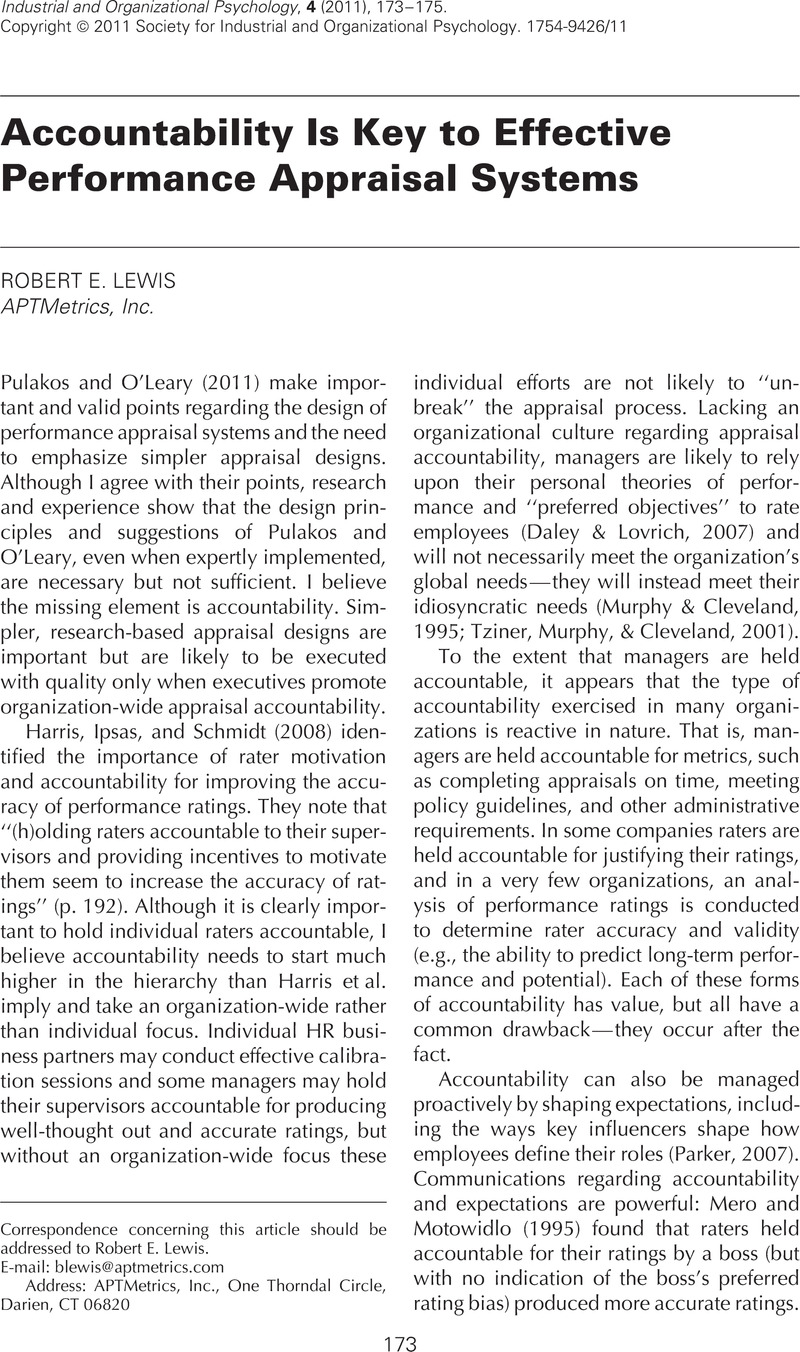Crossref Citations
This article has been cited by the following publications. This list is generated based on data provided by Crossref.
O’Leary, Ryan S.
and
Pulakos, Elaine D.
2011.
Managing Performance Through the Manager–Employee Relationship.
Industrial and Organizational Psychology,
Vol. 4,
Issue. 2,
p.
208.
O’LEARY, RYAN S.
and
PULAKOS, ELAINE D.
2011.
Managing Performance Through the Manager-Employee Relationship.
Industrial and Organizational Psychology,
Vol. 4,
Issue. 2,
p.
208.
Levy, Paul E.
Tseng, Steven T.
Rosen, Christopher C.
and
Lueke, Sarah B.
2017.
Research in Personnel and Human Resources Management.
Vol. 35,
Issue. ,
p.
155.
Stalnaker, Dean
2018.
Industrial and Organizational Psychology: Humans and Organizations.
SSRN Electronic Journal ,
Park, Seejeen
2018.
Measuring Accountability in the Performance Appraisal Context: Rater Status and Organization Culture as Determinants of Rater Accountability.
Current Psychology,
Vol. 37,
Issue. 1,
p.
162.



